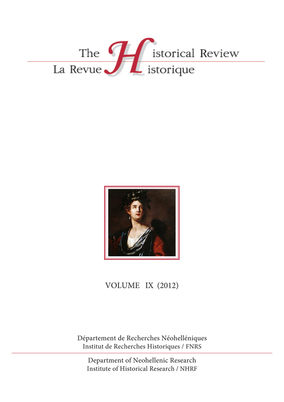People, their Experiences and Merchant Practices in a Port-city : Naples as a Mediterranean Crossroads in the Modern Age
Part of : The Historical Review ; Vol.7, No.1, 2010, pages 77-97
Issue:
Pages:
77-97
Author:
Abstract:
Naples, the densely populated capital of the Kingdom of the Two Sicilies, was a multi-ethnic city in the early Modern Age. The people who lived and worked there intertwined the events of their lives through commercial and maritime activities, identifying themselves in relation to merchant and craft guilds, religious and charitable institutions, national lodges and cultural associations, as well as family networks and economic interests. At this Mediterranean crossroads, co-existence followed complex logics affected by diverse presences and intercultural influences. An opportunity emerges from an examination of these realities from a perspective favouring extroversion: to construct a Mediterranean network among scholars and to encourage synergies among them. In this sense, Neapolitan research sources – which offer an imposing documentation often difficult to utilise – can give unexpected results. Yet what are the underlying problematic areas; what are the possible research instruments and strategies? The second half of the seventeenth century is a fertile terrain for a working theory, exemplified by and illustrated through the case of the House of Raillard. This family enterprise – international in character – intersected the history of the city, linking merchant experiences and businesses in Naples and elsewhere. From this emerge events and personalities, behind which notations of activities pursued and horizons perceived wait to be explored.
Subject:
Subject (LC):
Notes:
856:https://ejournals.epublishing.ekt.gr/index.php/historicalReview/article/view/4039, DOI: http://dx.doi.org/10.12681/hr.257
Electronic Resources:




